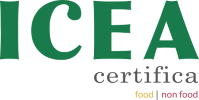INFORMATIONS
Aquaculture.
The term aquaculture defines the set of activities aimed at the controlled production of aquatic organisms. Specifically, it can be distinguished in fish farming, shellfish farming, crustaceans and algiculture.
If responsibly developed and practiced, it will be able to make a significant contribution to global food security and economic growth.
The exploitation of fish resources, the theme of animal welfare, as well as the problem of product safety and quality and consequently the safeguarding of the marine environment, have led the EU Commission to define the requirements for organic aquaculture.
Since July 2010, Reg. No. 710/2009 has entered into force in Europe, modifying EC Regulation 889/08, introducing the technical rules for organic aquaculture.
A great opportunity for European aquaculture that, to tackle a very competitive and globalized market, must inevitably focus on production systems that guarantee a high level of product quality and maximum respect for the environment.
In addition to animal welfare, organic aquaculture also pays special attention to environmental problems, by verifying the quality of the places where breeding takes place.
The feed used must meet specific nutritional requirements. Fish flours and oils can be used if they come from fishing waste and, in any case, in a context of certified sustainable fishing.
Animal health management must aim at disease prevention. In addition, significant limitations are imposed on the use of feed materials and cleaning and disinfection products.
The fish produced from organic aquaculture has high organoleptic qualities and is obtained without the use of GMOs.
Organic certification helps reduce the company’s impact on the environment and in many cases protects delicate habitats.
Organic algae.
European legislation also includes criteria for the biological cultivation of seaweed. The collection of wild marine algae in areas of high ecological quality (Directive 2000/60/EC) also constitutes an organic production method provided that this activity does not harm the long-term stability of the natural habitat or the protection of species in the area of collection.
With EU Reg 673/2016, spirulina was included in the item “algae and microalgae” and included in reg 834/07 and 889/08.
Therefore all the technical means that they want to use in the production must be admitted by the reg 889/08.

